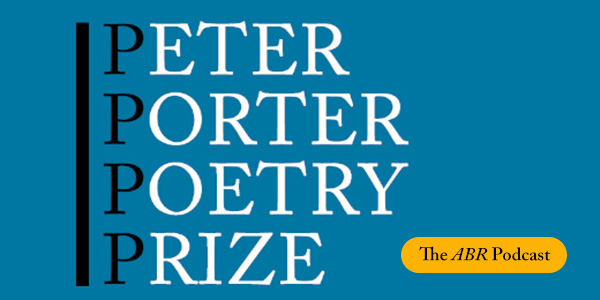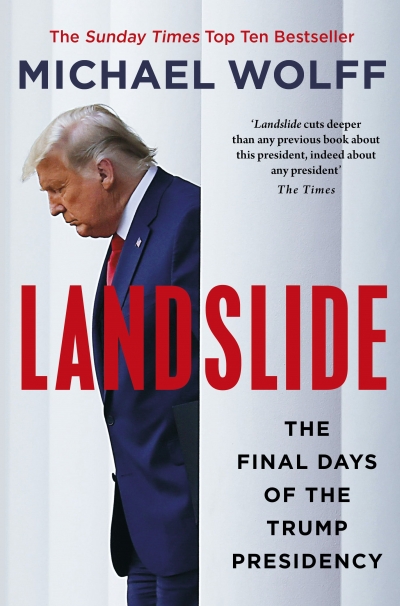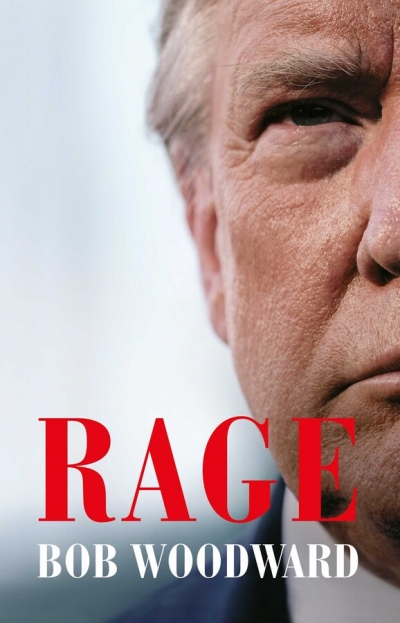Accessibility Tools
- Content scaling 100%
- Font size 100%
- Line height 100%
- Letter spacing 100%
Donald Trump
The ABR Podcast
Released every Thursday, the ABR podcast features our finest reviews, poetry, fiction, interviews, and commentary.
Subscribe via iTunes, Stitcher, Google, or Spotify, or search for ‘The ABR Podcast’ on your favourite podcast app.
2025 Peter Porter Poetry Prize Shortlist
Read by the poets
This week on The ABR Podcast we feature the 2025 Peter Porter Prize shortlisted poems, as read by the five poets, published in the January-February issue of ABR.
Recent episodes:
The Apprentice begins with footage of Richard Nixon addressing a television audience. It is 1973 and the Senate Watergate hearings are underway. ‘People have got to know whether or not their president is a crook … Well, I’m not a crook,’ Nixon intones.
... (read more)Trump's Australia: How Trumpism changed Australia and the shocking consequences for us of a second term by Bruce Wolpe
In this week’s ABR Podcast, Timothy J. Lynch, Professor of American Politics at the University of Melbourne, considers the November 2022 American midterm elections. Lynch finds reason to ‘to be cheerful’, for what voters communicated – more than anything else – was their growing intolerance for a new brand of ideologically driven, conspiratorial politics. Listen to Timothy J. Lynch with ‘Enough already! Post-Trump America returns to the centre’.
... (read more)The United States is entering an important phase. By this time next year, with most presidential candidates declared, we will know whether the republic is post-Trump and returning to ‘normalcy’ or approaching peak-Trump and moving toward some sort of civil discord. I predict the former. The midterm elections in November 2022 revealed a nation grasping for the centre. The extremes of left and right did poorly. I expect this trend to continue through November 2024. So, for centrists, some New Year reasons to be cheerful.
... (read more)Landslide by Michael Wolff & Peril by Bob Woodward and Robert Costa
The events of January 6 shocked the world. In this episode of the ABR Podcast Samuel Watts reads his article 'This Is America' and offers a historical perspective. As Watts notes, 'To view the assault on the US Capitol as the climax of a dramatic, but brief, period of authoritarianism in the US is a potentially dangerous mistake. This attack was just the latest iteration in a long-lasting tradition of anti-democratic, white supremacist violence that has plagued the Republic since, at least, the Civil War.'
Samuel Watts’s article ‘This Is America’ is one of a series of commentaries funded by the Copyright Agency’s Cultural Fund.
... (read more)On the morning of 6 January 2021, President Donald Trump addressed a crowd of his supporters outside the White House for more than an hour. The president urged protesters who had already begun gathering along the National Mall to go to the Capitol Building where both houses of Congress were about to start the process of certifying the results of the electoral college, formalising Joe Biden’s victory in the November 2020 election. The election had been stolen, Trump told them: it was time for them to take it back and march on Congress: ‘You will never take back our country with weakness,’ said the president.
... (read more)Whatever we might think of him, Donald Trump has proven to be one of the most transformative figures in recent history. In today's episode, Timothy J. Lynch talks to ABR Editor Peter Rose about three new and highly critical books on Trump: Too Much and Never Enough by Mary Trump, A Very Stable Genius by Philip Rucker and Carol Leonnig, and The Room Where It Happened by John Bolton. As Lynch writes in his review, 'There is a paradox that these books illustrate but cannot resolve: why is a man so chaotic, so reviled, so malignant also so transformational?’
... (read more)In year four of their respective terms, George W. Bush and Barack Obama enjoyed a mixed press. Some accounts lauded them, others were sceptical. The assessments were uniformly partisan. The titles of contemporary books reflected how Republicans backed Bush (he was ‘The Right Man’), Democrats Obama (for successfully ‘Bending History’). Donald Trump, on the other hand, stands as one of the most vilified presidents in American history, from all points of the spectrum. Indeed, these books together make the case that the forty-fifth president is a man so psychologically flawed he poses a clear and present danger to American democracy.
... (read more)









